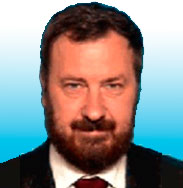Hydrogen and renewable energies: a love match or a marriage of convenience?
Jean-Luc Delplancke
Head of Programme Unit Fuel Cells and Hydrogen Joint Undertaking
FCH JU
During the European Council of the 23rd October 2015, an ambitious target of 27% renewable energy by 2030 in the European Union energy mix was adopted. These renewable energies (mainly photovoltaic and wind energies) are highly intermittent with daily and seasonally fluctuations. The European electricity network will not be able to support these fluctuations without the presence of buffers to balance the grid. Among different technologies able to store and deliver energy on demand, the hydrogen and fuel cells technologies could play an important role in the coming years. Connecting water electrolysers to renewable energy sources seems a perfect solution but different technological constrains like the size of the needed electrolysers, their dynamic reaction and operability or the hydrogen storage may transform this love match into a marriage of convenience. The presentation will highlight the pros and cons of hydrogen as energy carrier for balancing the grid in comparison with other energy storage facilities and will highlight the efforts made by the Fuel Cells and Hydrogen Joint Undertaking stakeholders, the European Commission, The Industry Grouping and the Research Grouping, to eliminate the hurdles in view of large industrial application of these technologies.
Curriculum
Jean-Luc is responsible for the management of a team of scientists dealing with the funding and the monitoring of research and demonstration projects in the field of fuel cells and hydrogen technologies.
This FCH JU is a public-private partnership with financial support initially from the 7th Framework Program and now from the Horizon 2020 Program of the European Union. Prior to joining the FCH JU, he worked as Civil Servant for the European Commission and as Professor at the Free University of Brussels. Originally from Brussels, Belgium, Jean-Luc received a Master degree in Chemical (1981) and Metallurgical (1983) Engineering and a PhD (1987) in Materials Science and Electrochemistry.
